Politics, Sci-Fi & UFOs Converge in 'Saucer Country'
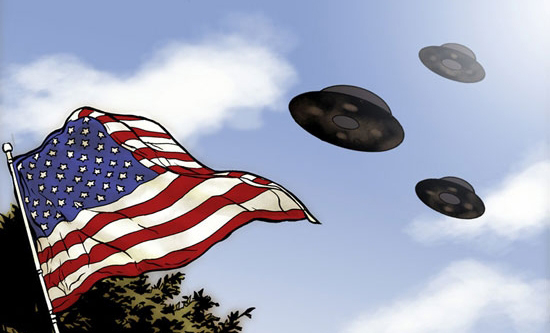
In Saucer Country, the realistic meets the fantastic, as writer Paul Cornell and artist Ryan Kelly juxtapose the volatile political climate of a U.S. presidential campaign with the world of alien abductions and UFOs.
The story, which debuts in March from Vertigo, centers on Arcadia Alvarado, the Mexican-American governor of New Mexico. As she's about to embark on a campaign for president, she and her alcoholic ex are abducted by aliens.
Suddenly, her campaign for the presidency takes on new meaning as she begins a quest for answers about what happened to her.
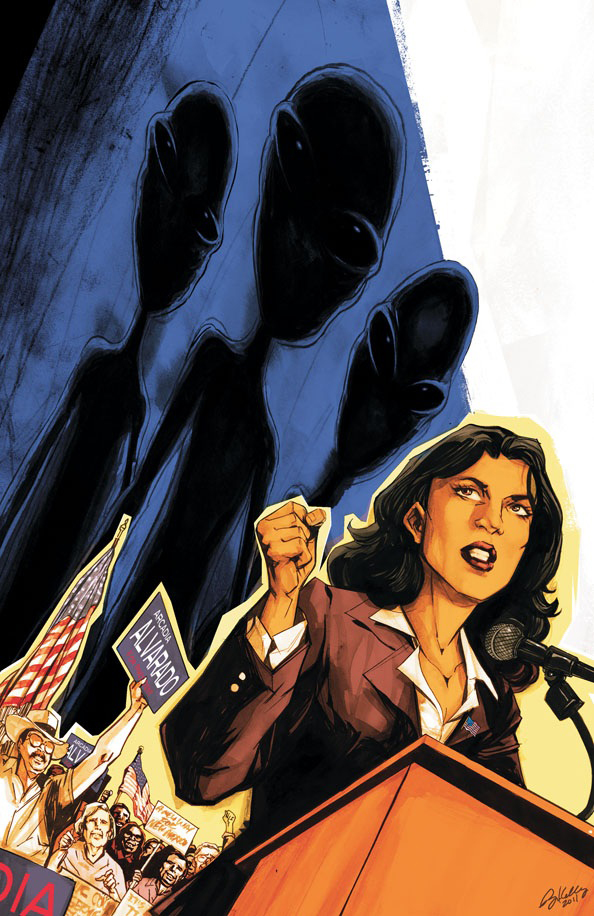
The comic will also include accounts of "true stories" about people who claim to have been abducted by aliens, much like the piece Cornell wrote for the recent Vertigo anthology Strange Adventures.
As Cornell has backed away from one of his "New 52" books, Stormwatch, now writing only the ongoing series Demon Knights, the launch of Saucer Country represents his first title for Vertigo.
Newsarama talked to the writer to find out more about the passion he feels toward the story he's telling and what readers can expect from Saucer Country.
Newsarama: Paul, this new comic is being described by Vertigo as West Wing meets X-Files. Is that pretty accurate?
Get the Space.com Newsletter
Breaking space news, the latest updates on rocket launches, skywatching events and more!
Paul Cornell: That's a good way of summing it up. But although the book is full of wild UFO mythology and lots and lots of political intrigue and chat, it has some very relatable, emotional people at the heart of it.
Nrama: Your main character is Gov. Arcadia Alvarado. How would you describe her?
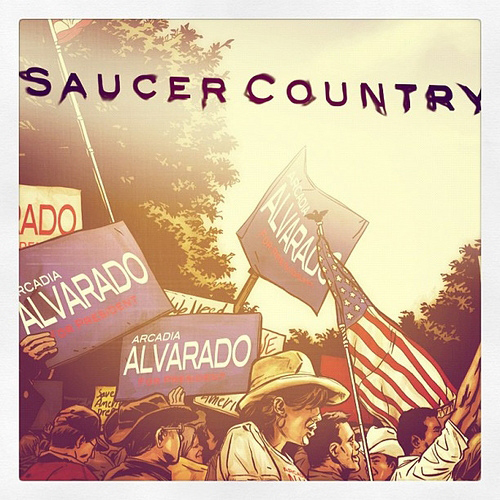
Cornell: She's the Latina governor of New Mexico, a Democrat who is running for president, and she experiences an alien abduction.
She's a viable candidate at the time it happens, and she's seen as the voice of reality, the down-to-earth person, which makes her experience all the more difficult to deal with. She's so down to earth that only she could decide so quickly that it must have been real.
Arcadia is trying to hold on to being a popular local person at the same time as being on the verge of going on to much bigger things, and at the same time as having encountered something impossible.
Nrama: And once she decides the abduction was real, what happens?
Cornell: Imagine President Barlett's staff on The West Wing thinking they may have uncovered an alien invasion, that's the sort of feeling I'm after. Them applying their very real political skills to the inexplicable and the extraordinary.
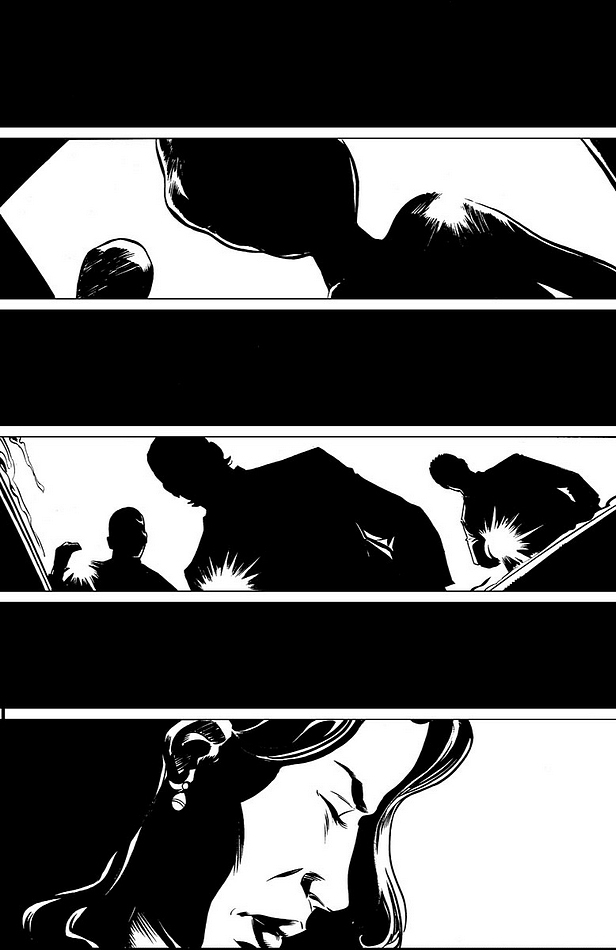
Nrama: What other characters will we see in the comic?
Cornell: There's Arcadia's soon-to-be ex-husband, Michael. The two are on their way to a divorce at the point when both are abducted. Michael is a very complicated guy. He's a bit rogue-ish. They're separated, but they're still friends. They were kind of political rebels together when they were young. And he can't really deal with being part of a big responsible thing in power. He wants to get drunk and realizes that, basically, he can't because now the world will be watching him. And so they've become estranged. Arcadia's office keeps telling her that she has to cut ties with this guy, but she still knows him as a friend and cares for him.
So the two of them have this insane experience that nobody else around them shares. And their relationship is going to be important in the book as well.
And then there's Chloe. She's a Republican adviser that Arcadia has brought in as a strategy adviser, as a lot of candidates do, in order to hear the other side. Chloe ends up being the voice of cold reality and jokes in the book, which I like to have in my stories. Chloe tells harsh truths.
And the first thing Chloe says when Arcadia tells her that she's been abducted by aliens, is she laughs and goes, "You really, really got me there. That's a fantastic joke."
There's Harry, who's the chief of staff, who is the down-to-earth, get-it-done man. He immediately says, "if that's what she said, that's what happened" to everyone else. And then he yells at her as soon as he gets her alone.
Nrama: As Arcadia and her staff investigate the reality of this abduction, what do they encounter? Does Arcadia's world include a group of spies or government agents who are knowledgeable about aliens?
Cornell: I think it's quite clear that if Arcadia could, and she will, talk to high-ranking U.S.A.F. officers or high-ranking CIA people, they would quite honestly tell her they have no idea about any of this stuff and regard it as a distraction at best.
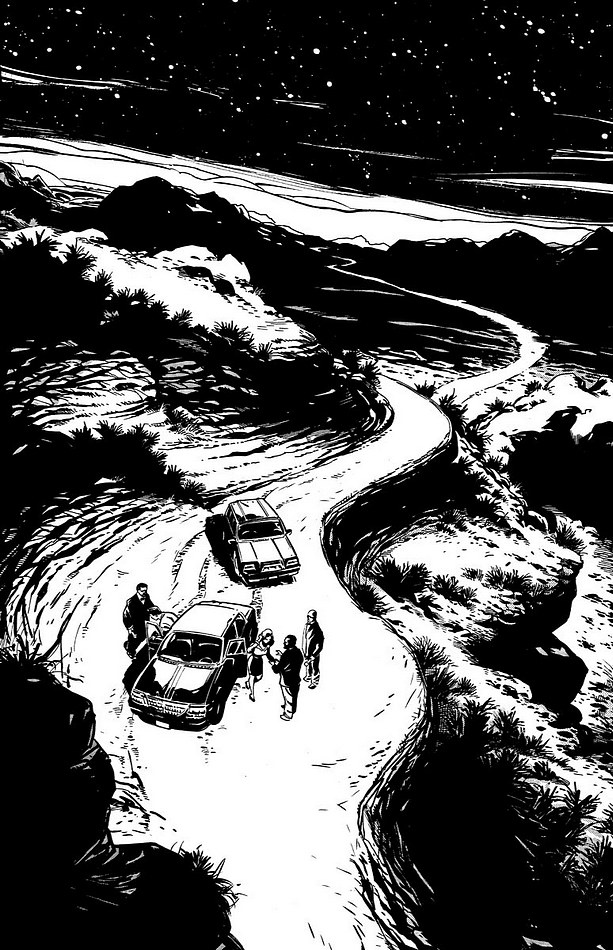
I think there is a section of the intelligence community who have been using the UFO myth to hide things behind, and have been manufacturing stuff and encouraging stuff, and that's something we might get into as well.
But there is a sort of "expert" in our story, Professor Joshua Kidd, a sociology professor who's about to be sacked from his job for having written a book about UFOs. He's based on two or three different figures in academia who were threatened with losing tenure because they started talking about abduction lore, and talking about it in a way of relating to people who've been abducted.
Kidd is haunted in a very specific way. And I'm going to leave that until the issue, because it's one of our best visuals. He's got things following him around, and he's not sure what they are. And those things seem to be messengers from a higher power who tell him to leave his job before he's sacked and go and work for the call he's about to get.
And that call is from, of course, Arcadia. She calls and asks for someone who will sign a non-disclosure agreement, who is a serious academic, who can tell her something about flying saucers.
So he was a believer, but he changes his mind very quickly. He's our person who says there's something huge and complicated and mythological going on here, but I'm not sure that any side can define it yet. But he knows the map. He knows the places they should go visit and where they should look for answers.
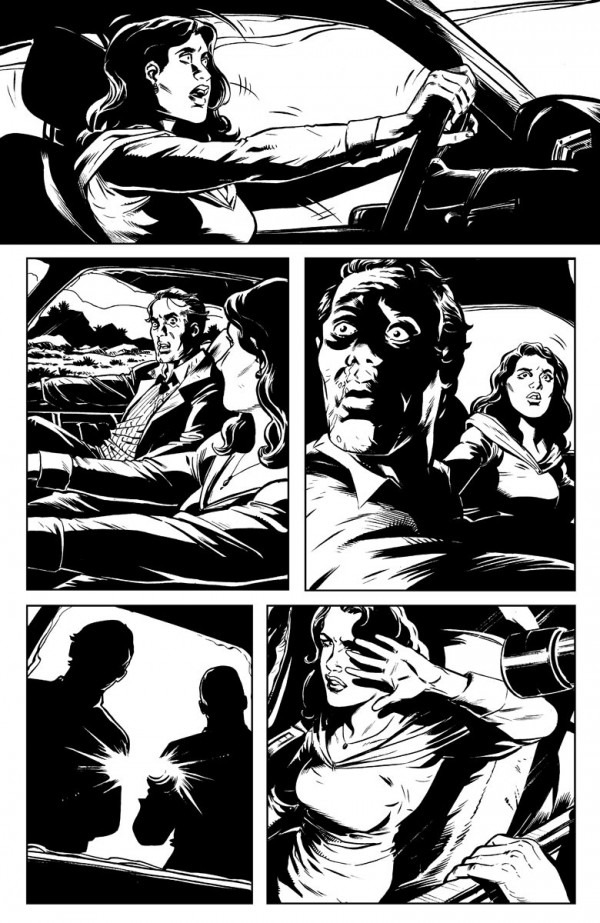
Nrama: With the 2012 election around the corner, this is good timing to release a sci-fi book that also explores politics.
Cornell: Well Vertigo may have selected it because of the timing. But this book is something I've been training for since I was six. I used to read scary UFO books where you'd turn over a page and there'd be a scary drawing of an alien. And I think that warped my young brain.
I'm also a huge fan of politics. I love The West Wing portrayed them, because it showed that there are dimensions of professionalism and competence and honor there, which don't always get recognized. People like to say politicians are all the same, but they're not.
But I've been fascinated with UFO myths all my life, and I've always wanted to find a way to write about it. And this really is the ideal way.
Nrama: You mentioned earlier that you think this is the "ideal way" to write about UFO myths. Why do you think a comic like this is the ideal way to tell a story about UFOs?
Cornell: The thing is that as soon as you try to make the UFO myth into something concrete — and this was the eternal dilemma of The X-Files — as soon as you get to the heart of it, you drain all the mystery out of it. So with The X-Files, they had to keep playing the game, "oh we're so close/oh we're so far away again."
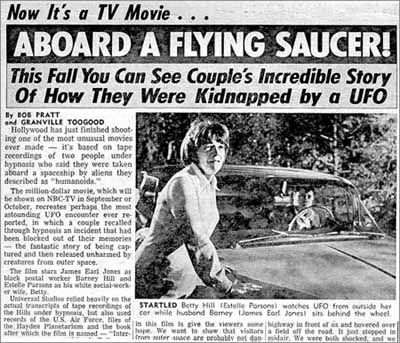
An ongoing Vertigo series has lots of space so you can explore all of the gorgeous depths of the mythology. But also, there is probably an end in sight, unless of course you're Bill Willingham and just decide to keep going. But, you know, a Vertigo series gives you that lovely combination of being able to be concrete when we want to be, but also deal in a lot of gray areas.
This isn't a title about people fighting aliens. This is a title about people suddenly finding out that the mythology may be true, and connecting with the new menace, but not knowing what's real and what isn't.
Nrama: OK, but what do you think the premise of involving a presidential candidate provides to the story?
Cornell: Oh, the lovely thing about having a presidential candidate at the heart of it is that the majority of politicos are the most hardheaded people you can imagine.
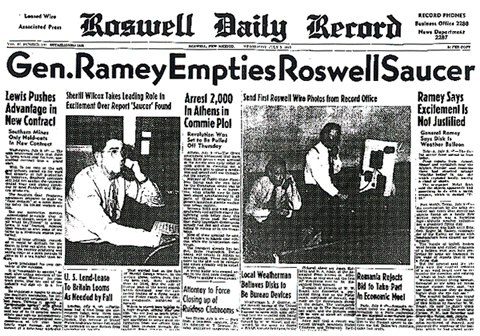
So Arcadia's catchphrase is, "A thing is what it is."
And she wakes up and concludes, after days of soul-searching, that what she remembers, in fragments — that is, being abducted by aliens — really happened to her because "a thing is what it is." And if it happened to her, it can happen to other people. It is real.
And thus, it should be something that a president should be concerned about.
It's not that she tells the world, because she realizes that would end her campaign. What she's going to do is run for president with the aim of getting the power, then using that power to shine a light into all this stuff.
It's the wonderful collision between the mindsets of the "art of the possible" in politics and the "art of the impossible" in the UFO myth.
And I'm having a wonderful time with it.
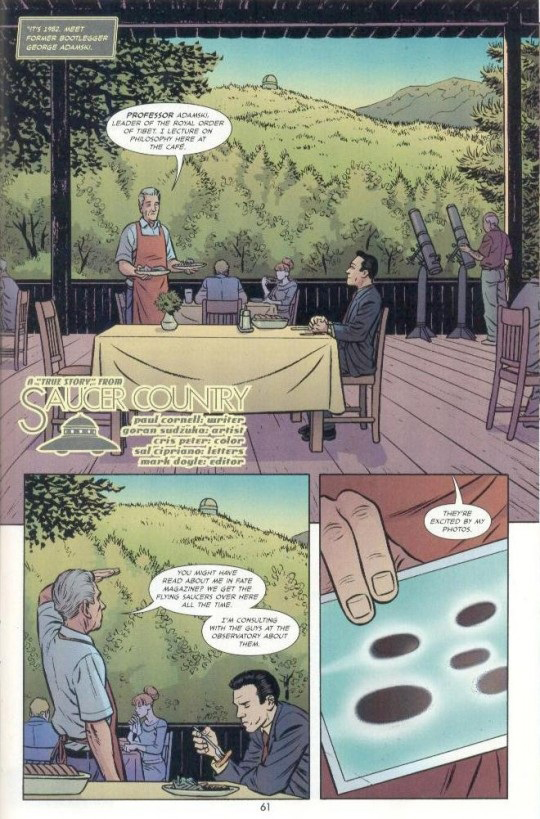
Nrama: What's it been like working with Ryan Kelly on the comic?
Cornell: It's been fantastic! Getting Ryan Kelly artwork in your in-box is such a joy. I said to him, "Scare me with your aliens." And he did! Ooohh.
Nrama: That has to be a challenge of this thing. We've seen so many images of so many different aliens over the years, so it must be tough to come up with a storyline and a visual that is haunting.
Cornell: The front cover painting of Whitley Strieber's Communion — that absolutely implacable piece what would later become known as the "grey alien" — still has the power to scare me. I think that artist really captured something that we're all deeply afraid of.
I love the fact that in modern culture, the "greys" have become these little cartoon figures, which is done by actually humanizing them, injecting them with a bit more of the traits of big-eyed little babies rather than what they are, which is more like aborted fetuses, cats being experimented upon in laboratories -- all those round-headed things we've done coming back in our nightmares to get us.

Ryan is playing with that all the time. He's got a few different variations. I think it's important that they don't look the same whenever our heroes think back about them. That, you know, they're not standing there in real, solid, metal spaceships with ray guns and names and plans. As soon as they do that, they stop being scary.
They are things of nightmare.
But Ryan also draws realistic people, and buildings and offices, and a sense of place, a sense of drama. He's just incredibly dedicated, and if you want character drama between real people, he really is your man.
Yet because he doesn't get to draw the fantastic very often, in those moments when the fantastic arrives in this comic, it does so in grand style.
Nrama: I think it's interesting that your story takes place in New Mexico. Did you research the location and its UFO history?
Cornell: I did! I even went down and drove around New Mexico, which is just this fantastic luminal space. It's the aerospace state, you know. It's not only loaded with UFO mythology, but space history as well. So we visited New Mexico, and I photographed the governor's mansion. And you know, if anybody had come out, I would have said, "It's all right! I'm writing a comic book about flying saucers!"
Nrama: You probably would have gotten locked up.
Cornell: Perhaps. I also went around Roswell on my recent visit, and that, actually, I was surprised that there are different versions of that whole event. There's a kind of "media version" of Roswell that isn't like the real place at all. I was quite moved. I think whatever happened at Roswell, and I don't think it was an alien craft, I think there was certainly some very heavy-handed military action that day, which is where the whole myth of Roswell comes from. It's fascinating.
Nrama: Will you be dealing with Roswell at all in the comic?
Cornell: Well, you know, one of the first thing Professor Kidd says to Arcadia is, "You do know the answer to this question may be in the office next door, don't you? The record of your predecessor from 1947."
Nrama: The governor at the time of the Roswell incident?
Cornell: Yes. And the governor was there.
Nrama: In Roswell?
Cornell: Yes, he was there at the airbase by accident, giving out some sort of award, on the first day of Roswell.
Nrama: That's true? He really was?
Cornell: That's true. He left immediately. And this is just feeding the myth. I love the romance of this. He immediately requested an audience with the president, which he got the next day. There's no record of what they talked about.
So Arcadia may be right in the middle of the answers to the whole thing.
Nrama: Along with Roswell, will we be seeing some other historical stories of abduction and alien mythology?
Cornell: Definitely, and one of the lovely things about this series is that we can do not just them, but all the other kinds of aliens and spaceships too. What we're going to do is arcs that explore, as Arcadia gets into the mythology and gets into investigating it, different aspects of the UFO myth. The "men in black," Roswell, the ancient flyers ...
At the turn of the century, something like 10 years before there were navigable dirigibles, mysterious flyers used to land in America and meet with locals who just popped out for a walk, having seen this illuminated crafter overhead. And the people they met were inventors from Europe who had arrived in advanced dirigibles. Apart from that, every single aspect of those encounters was redolent of a modern-day UFO encounter, with a notable underlining that said inventors weren't real. So we're going to explore that, in a lovely steampunk arc there.
And between the arcs, we're going to do one-off issues telling "true stories," like we began in the Strange Adventures one-off with a short about George Adamski. The first one of those is going to be Barney and Betty Hill, the world's first abductees, and how weird and marvelous their story is. And when we deal with real people, we're not mocking them at all. We're saying we think something real happened to these people, but we don't think we or they know what that is.
You see? I can talk for ages about this stuff!
Nrama: Then let's just finish up by talking about this being your first Vertigo comic. Is this something you've wanted to do for awhile?
Cornell: I've been trying for a year to get something together with Vertigo. It's always been an ambition of mine, and this is really a dream come true. And for them to go straight to an ongoing, that's really satisfying.
This story was provided by Newsarama.com,a sister site of SPACE.com.
Join our Space Forums to keep talking space on the latest missions, night sky and more! And if you have a news tip, correction or comment, let us know at: community@space.com.










